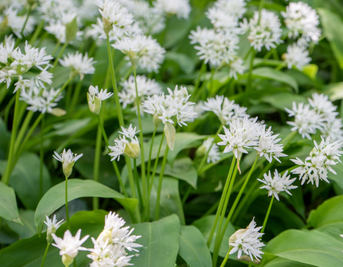Skin Problems
by Dee Atkinson, MNIMH
At Napiers we find that the most common skin problems are:
• Psoriasis
• Eczema
• Acne vulgaris
• Acne rosacea
• Dermatitis
• Dry skin
It is easy to forget that your skin is the largest organ in your body, and the only organ that we can see easily and on a daily basis! The skin can be thought of as an outward reflection of your inner health and well being. Skin problems cause a huge amount of physical discomfort and emotional stress and many of the prescribed medicines that patients use simply give some topical relief, but do not treat the underlying cause. Many people find that when they stop using prescription medicines that their problems flare up again. Some products, such as steroids, have side effects and should not be used for extended periods. Herbs have been used by herbalists to treat skin problems for centuries using them for blood purifying, immune support, to fight infection and aid elimination. A herbalist looks at the patient as a whole taking into account family history; diet; medical history and lifestyle. Our bodies are complex and when we develop a problem there is oftenmore than one factor acting as a trigger.Whilst the best approach is always to consult a practitioner, there are a number of things that you can try for yourself.
INTERNAL USE
Some useful herbs include:
Echinacea (Echinacea angustifolia) is often used to clear up mildly infected skin problems and teenage acne. It can also be used topically.
Sarsaparilla (Smilax officinalis) is a cleansing and detoxifying herb, used traditionally for psoriasis, acne and rosacea. It can be drunk as a tea or taken as a tincture.
Burdock (Arctium lappa) is considered to be a liver herb, and helps with elimination and clearing skin problems. It is often used in long standing cases of acne and psoriasis.
Chamomile (Chamomilla recuitita) is a gentle nerve relaxant, anti-inflammatory and healer. It combines well with plantain and nettle for the treatment of eczema.
Plantain (Plantago lanceolata) is a cooling and strengthening herb for the skin. It promotes healing and works well in a tea blend.
Nettle (Urtica dioca) is traditionally used as a gentle blood cleanser and anti-allergy remedy. It is particularly useful for itchy, allergic skin conditions and can be taken as a tea or tincture.
EXTERNAL USE
Creams or lotions containing these herbs can help to soothe and moisturise the dry skin associated with these conditions that often causes so much of the irritation:
Starflower oil (Borago officinalis) is soothing, healing and anti-inflammatory. It is useful to treat inflamed skin such as in eczema, psoriasis or dermatitis.
Chickweed (Stellaria media) is a cooling herb for hot, itchy skin.
Chamomile (Chamomilla recutita) is used by herbalists to reduce redness and inflammation in itchy skin conditions. It combines well with cooling peppermint for itchy eczema.
Pokeroot (Phytolacca decandra) may help to reduce redness and scaling in psoriasis when used as an ointment.
Marigold (Calendula officinalis) is used for its healing and antiseptic properties to prevent infection and heal broken skin. It is useful in acne, dermatitis, eczema and to heal wounds.
Tea Tree (Melaleuca alternifolia) essential oil has a strong antibacterial action, and is extremely useful in treating acne, as a herbal cream, gel or in skincare preparations.
Caution: Stopping the use of steroid-based creams suddenly can cause skin conditions to flare up. Steroid creams should be withdrawn slowly and can be used alongside herbal preparations. If in doubt, consult your doctor or a qualified medical herbalist.
DIET AND LIFESTYLE
Smoking can play havoc with the skin, robbing the body of vital antioxidant nutrients and adversely affecting the skin's blood supply. Cigarette smoke also contains a wide range of toxic substances that can trigger allergies in some people. Stress can play a large part in skin flare-ups and a noticeable improvement can often be seen when stress levels are reduced. See our Stress Management page for information on herbs to help control stress. Exercise can also help to reduce stress levels and boost circulation and energy levels.
It is also really important to get adequate sleep – this is when your body does its repair work, and lack of sleep can contribute to dull, problematic skin. The correct balance of nutrients is vital for skin to repair and renew itself. A diet based on refined and processed foods can lead to nutritional shortfalls that also affect the immune system, hormonal balance and bowel function – all factors that may be reflected in skin health.
Foods containing additives and colourings, tea, coffee, fried foods, sugary foods and drinks, dairy products and animal fats can contribute to skin problems or make them worse. Alcohol can also exacerbate itchy, flaky and inflamed skin conditions, and is best kept to a minimum. The best approach is to eat fresh, unprocessed foods including fruit and vegetables, whole grains, pulses, nuts and seeds with plenty of fluid in the form of plain water, herbal teas, or diluted fruit juices. Aim to eat at least 5-7 portions of a variety of fresh fruit and vegetables daily plus around two litres of fluid.
Some cases of eczema may be linked to food allergy or intolerance and eliminating the offending foods can greatly improve the condition. Cow’s milk and wheat products are common triggers for skin problems, but other foods may be identified using food sensitivity testing as a guide.
SUPPLEMENTS
Essential Fatty Acids (EFAs) like Gamma Linolenic Acid (GLA), found in Starflower and Evening Primrose Oil and Eicosapentaenoic Acid (EPA) are sometimes used in the treatment of dry, irritated skin conditions.
Zinc is important for the immune system, skin healing and reducing inflammation.
Vitamins A, C and E are all important for immune function, skin healing and to prevent premature ageing of skin.

